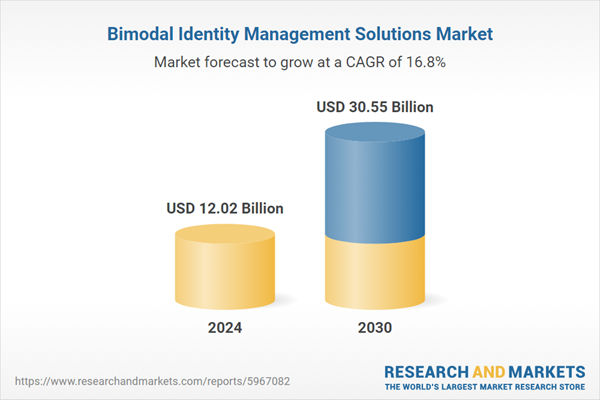Cloud-based is the fastest growing segment, North America is the largest market globally
Speak directly to the analyst to clarify any post sales queries you may have.
10% Free customizationThis report comes with 10% free customization, enabling you to add data that meets your specific business needs.
Key Market Drivers
The escalating landscape of cybersecurity threats and data breaches represents a paramount driver for the Global Bimodal Identity Management Solutions Market. Organizations confront increasingly sophisticated attack vectors, leading to substantial financial and reputational damage. Comprehensive identity management is crucial for fortifying digital defenses, preventing unauthorized access, and maintaining business continuity across complex IT infrastructures.Key Market Challenges
A significant impediment to the growth of the Global Bimodal Identity Management Solutions Market is the inherent complexity involved in integrating these advanced solutions with existing legacy systems. Many organizations operate hybrid IT environments, combining traditional on-premises infrastructure with modern cloud-based technologies. Seamless integration is often complicated by incompatible application programming interfaces and a lack of inherent support for contemporary features within older systems, creating substantial technical hurdles.Key Market Trends
The increasing adoption of biometric authentication is a significant trend transforming identity management by enhancing both security and user convenience. Biometrics, such as fingerprints, facial recognition, and iris scans, offer a more robust and less susceptible alternative to traditional password-based methods, crucial for securing access across diverse organizational environments. According to a FIDO Alliance report released in February 2025, 87% of surveyed companies in the U.S. and UK are actively deploying or preparing to deploy passkeys for employee sign-ins, driven by objectives to improve user experience, strengthen security, and meet compliance requirements.Key Market Players Profiled:
- Cloud Software Group, Inc.
- Oracle Corporation
- Microsoft Corporation
- IBM Corporation
- Fischer International Identity, LLC.
- One Identity LLC
- Ivanti, Inc.
- Open Text Corporation.
- Hyland Software, Inc.
- SailPoint Technologies, Inc.
Report Scope:
In this report, the Global Bimodal Identity Management Solutions Market has been segmented into the following categories:By Vertical:
- Education
- BFSI
- Manufacturing
- Telecom and IT
- Energy
- Healthcare and Life Sciences
- Public Sector & Utilities
- Retail
By Organization Size:
- Small & Medium Enterprises (SMEs)
- Large Enterprises
By Deployment:
- Cloud-based
- On-Premise
By Region:
- North America
- Europe
- Asia Pacific
- South America
- Middle East & Africa
Competitive Landscape
Company Profiles: Detailed analysis of the major companies present in the Global Bimodal Identity Management Solutions Market.Available Customizations:
With the given market data, the publisher offers customizations according to a company's specific needs. The following customization options are available for the report:- Detailed analysis and profiling of additional market players (up to five).
This product will be delivered within 1-3 business days.
Table of Contents
Companies Mentioned
- Cloud Software Group, Inc.
- Oracle Corporation
- Microsoft Corporation
- IBM Corporation
- Fischer International Identity, LLC.
- One Identity LLC
- Ivanti, Inc.
- Open Text Corporation.
- Hyland Software, Inc.
- SailPoint Technologies, Inc.
Table Information
| Report Attribute | Details |
|---|---|
| No. of Pages | 181 |
| Published | November 2025 |
| Forecast Period | 2024 - 2030 |
| Estimated Market Value ( USD | $ 12.02 Billion |
| Forecasted Market Value ( USD | $ 30.55 Billion |
| Compound Annual Growth Rate | 16.8% |
| Regions Covered | Global |
| No. of Companies Mentioned | 10 |









